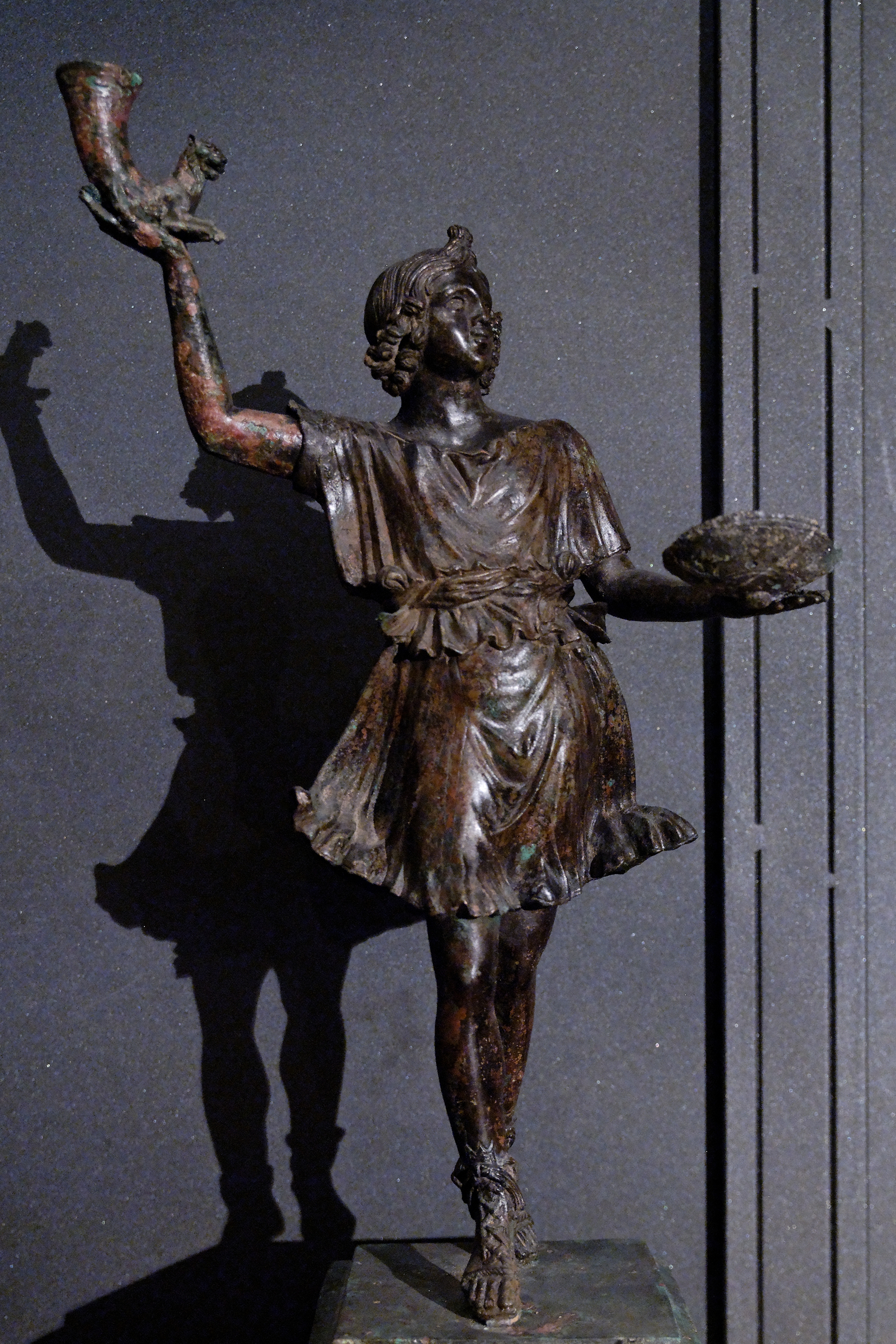 |
| Lar statuette, bronze, 1st century AD (Capitoline Museum, Rome). Marie-Lan Nguyen (User:Jastrow) 2009 |
The tutelary deities Lares and Penates have often been pared, thus causing some uncertainty as to the clarity and consistency with which they were imagined by the ancient Romans. They are often referred to as "household gods." The Lares may have been heroes or daemons of the family, though they seem to always be represented as boys, and were grouped with an ancestral figure in their niche. Beyond simply the home association, Lares were associated with any enclosed area. You can think then of concentric enclosures from the room of the house they were in, then the land the house was on, the vicinity or community the land was in and as far out as one could name boundaries, all the way to the Lares of the Emperor himself. I am not sure how closely my imagination of Rome corresponds to the imagination of the Romans, but I always think of the domestic Lares first.
Similar to the domestic Lares, the Penates are household deities, associated with the Genius of the paterfamilias and Vesta, the goddess of the hearth. Their sphere is the larder or pantry, and in shrine at the entrance of the domus, they often flank a statue of Vesta.
I have to admit, I have some difficulty getting my mind around the idea of household gods. I am too much a monotheistic Westerner, with "but as for me and my house, we will serve the LORD [YHWH]" ringing in my ears. I have to remind myself of some things closer to home to get my mind around statuettes that Rachel steals from her father, Laban, when her husband Jacob flees from him, the teraphim of Genesis 31:25-43. The little guys suffer the indignity of being sat upon when Laban catches up and demands their return, and Rachel shows herself a worth match for both husband and father when she says she is menstruating. The belief in the impurity either fooled Laban or it rendered the household gods impure. What these idols or fetishes represented are uncertain, a matter of largely speculative scholarly debate. But they certainly do not stand as real conceptual options on a level with YHWH God, though the choice between them is exclusive from the biblical point of view.
But something about the idea that they are like genii loci, but associated with enclosures created by humans, gives me an odd idea. What if there were spirits or fae who were created by human action? Household gods would not then be really on the level of, say, Vesta, though perhaps it is through some power and law of hers that they are created by human domesticity. They would then be more like the English brownie or the Slavic domovoi. Something less informed by the more advanced conceptions of deity, and something a little more like these guys:
 |
| If you don't recognize the property of J. K Rowling and the rights she sold to Warner Bros... |
